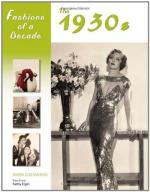|
This section contains 298 words (approx. 1 page at 300 words per page) |

|
After the Civil War the University of South Carolina hired a black, Harvard-trained teacher named Richard Greener. He left the school in 1873. Between that date and 1940, not a single African American academic was hired as a fulltime faculty member at any important white university in the United States. In the 1930s there was a significant number of outstanding black scholars, including educators W. E. B. Du Bois and Horace Mann Bond; political scientist Ernest E. Just; sociologists E. Franklin Frazier, Charles Johnson, and Ira Reid; historians Rayford Logan, Carter G. Woodson, and John Hope Franklin; economist Robert C. Weaver; critic and art historian Alain Locke; poets Sterling Brown and Countee Cullen; and chemist Percy Julian. Although many had been educated at the finest American universities, including Harvard and Chicago, black scholars were offered professorships only at black schools — extremely...
|
This section contains 298 words (approx. 1 page at 300 words per page) |

|




